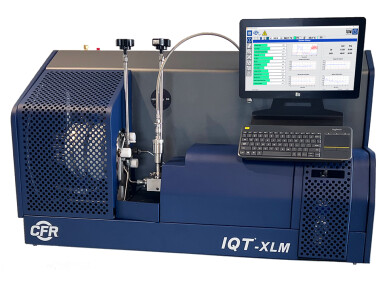Analytical Instrumentation
Why Are UK Petrol Prices Rising?
Oct 24 2016
Britain may have gained its independence from the EU, but the knock-on effect to the pound has been anything but liberating. Ever since the country voted to turn in its status as an EU member state sterling has been on a downward spiral. June’s bombshell Brexit vote saw the pound tumble by nearly 20% against the US dollar, and drop below 1.10 euros for the first time since March 2010.
Petrol prices hit a 14 month high
At first, it was currency exchange transactions that suffered. But now, the wider economic effects are starting to materialise. The depreciated pound has pushed petrol prices to a 14-month high, which has seen the national average sit at an eye-watering 114.9p per litre. This represents a jump or almost 13.5p per litre since the beginning of March, and means that the average motorist is having to fork out an extra £6.67 every time they fill-up the tank. Diesel drivers haven’t escaped the fiscal wrath, with prices jumping from 100.78p to 116.65p over the course of just eight months.
The data was put together by national motoring group the AA , with analysts warning that mounting prices are beginning to have “a profound psychological impact on family finances.”
“This is a hammer blow not only to family and business finances but a severe shock when people consider that supermarket fuel was available at £1 a litre earlier this year,” comments AA President Edmund King.
From petrol pumps to pantries…
This has driven in inflation to the highest levels seen in almost two years, with economists confirming that in September, the government endorsed consumer price index indicated that the national cost of living spiked from 0.6% to 0.9%. Experts also warn that the worst is yet to come, with the weakened pound set to trigger a storm of price hikes, particularly on imported goods.
The warning comes just days after Bank of England Governor Mark Carney cautioned Brits that food prices were set to climb, which supports former deputy prime minister Nick Clegg’s predictions that families will endure “inevitable” price rises on consumables if the UK vetoes the single market, and adopts World Trade Organisation tariffs. Specifically, he predicts a 59% tax on imported beef, 38% on chocolate and 14% on Chilean wine.
Not only will consumers be hit with higher prices at the checkout, but profits are major supermarkets will also absorb the crash. This could mean raising produce price tags across the board, as well as downsizing on staff.
A short term slump?
But despite the highly publicised negativity, it’s not all doom and gloom. Some critics are confident that Brexit will work fiscal magic, with influential think tank EY Item Club predicting that the national economy will grow 1.9% this year.
There’s definitely no shortage of commentary on the Brexit aftermath. But for everyday Brits, waiting to see how the decision pans out could turn into quite an expensive waiting game.
With fuel prices soaring, both consumers and companies are placing an increased focus on mechanical efficiency. For more information on technologies designed to guarantee optimal engine and machine performance while maintaining the best-possible protection of the environment, ‘Accurate and Precise Quality Control for Lubricants and Fuels by EDXRF’ is a must read article.
Digital Edition
PIN 25.5 Oct/Nov 2024
November 2024
Analytical Instrumentation - Picturing Viscosity – How Can a Viscometer or a Rheometer Benefit You? - Sustainable Grease Formulations: Evaluating Key Performance Parameters and Testing Method...
View all digital editions
Events
Dec 03 2024 Dusseldorf, Germany
Dec 08 2024 Anaheim, CA, USA
Turkey & Black Sea Oil and Gas
Dec 11 2024 Istanbul, Turkey
Dec 19 2024 Aurangabad, India
Jan 20 2025 San Diego, CA, USA



















